Call for Stricter Regulation of Scrubber Washwater
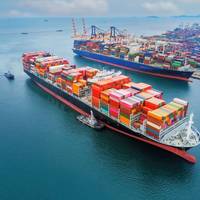
The combined emissions of metals and other environmentally hazardous substances from ships is putting the marine environment at risk according to a new study from Chalmers University of Technology, Sweden.The researchers calculated the contaminant load from these emissions into the marine environment in four ports, and found that water discharged from ships’ scrubbers accounts for most of the contaminants.“The results speak for themselves. Stricter regulation of discharge water from scrubbers is crucial to reduce the deterioration of the marine environment…
Is Baltic Sea Special Area for Passenger Ships Really Special?
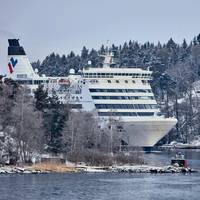
The persistent eutrophication (being too rich in nutrients) of the Baltic Sea prompted the IMO’s Baltic Member States to tackle shipping’s < 0.1% contribution by designating the Baltic Sea as the first Special Area under Annex IV of IMO’s MARPOL Convention [1]. Passenger ships must give sewage to wastewater treatment works (WWTWs) ashore via the port reception facilities (PRFs) or operate a nutrient removal sewage treatment plant (STP) on board prior to discharge. It has been perceived as a positive move. But how special is the Special Area?Rules at sea vs.
OPINION: Regulating Grey Water ... the Time is Now
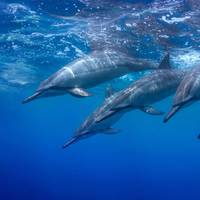
The IMO’s MARPOL Annex IV is being revised to confirm the lifetime performance of Sewage Treatment Plants (STPs). This may finally bring about grey water regulation – a necessity that is long overdue.Black Water and Grey WaterA ship’s sewage (black water) is collected from toilets, urinals and hospitals. The IMO’s MARPOL Annex IV prohibits its discharge, except when treated by an STP or discharged at > 12nm from the nearest land. A ship’s grey water, collected from showers, wash basins…
IMO Signs MoU with Spain on Tech Support
Spain and International Maritime Organization (IMO) have signed a Memorandum of Understanding on technical cooperation activities to support capacity-building activities in English and Spanish-speaking countries.The UN body informed that these activities will support implementation of its regulations, raise awareness of IMO's mandate and contribute to sustainable maritime transport and the implementation of the United Nations 2030 Agenda for Sustainable Development.The MoU covers a wide range of technical cooperation areas, including: search and rescue; maritime training and the human element; passenger ship safety; maritime communications and navigation…
E. Africa Focus on Marine Environ Protection
International Maritime Organization (IMO) has been working with southern and eastern African countries to help implement marine environment protection measures contained in one of the organization’s flagship treaties – MARPOL.A workshop held in Mombasa, Kenya (17-19) gathered participants from 12 countries to focus on MARPOL Annexes I to V, and in particular the regulations covering garbage discharge from ships and adequacy of port reception facilities. The participating countries were - Angola, Ethiopia, Kenya, Malawi, Mauritius, Mozambique, Namibia, Seychelles, Somalia, South Africa, Uganda, Tanzania (United Republic of).Participants discussed factors affecting full implementation of MARPOL and its annexes…
IMO's Ghost Gear Initiative
International Maritime Organization (IMO) is working on best practices to prevent and reduce abandoned, lost or otherwise discarded fishing gear."Abandoned, lost or otherwise discarded fishing gear can continue to capture and kill marine animals and may cause navigational hazards – as well as contributing to the global marine litter problem," the UN body pointed out.IMO is working closely with the Food and Agriculture Organization (FAO) on reducing marine plastic litter from fishing vessels, including fishing gear, as part of the IMO Action Plan on the Reduction of Marine Plastic Litter. This collaboration includes IMO participation at a series of regional FAO-led workshops on best practices to prevent and reduce abandoned…
Port of Rotterdam Strict on 'Polluter Pays' Principle
The Port of Rotterdam has emphasized the reinforcement of the polluter pays principle in the run-up to trilogue negotiations on the Port Reception Facilities Directive.Last month, on October the 9th, the Transport Committee of the European Parliament adopted the Meissner report on the Port Reception Facilities and gave a mandate to the Rapporteur to start negotiations with the Council to finalize the text of the new law.In the run-up to these negotiations, the Port of Rotterdam supports the view that minimization of waste discharges in the sea benefits from an effective and efficient legislative framework with incentive structures that promote the delivery of ship-generated waste.In that context…
IMO Adopts Action Plan on Marine Plastic Litter
The International Maritime Organization (IMO) has pledged to address the significant problem posed by plastics to the marine environment, with the adoption of an action plan which aims to enhance existing regulations and introduce new supporting measures to reduce marine plastic litter from ships.A press release from the UN body said that Marine Environment Protection Committee (MEPC) adopted (on 26 October) the action plan, to contribute to the global solution for preventing marine plastic litter entering the oceans through ship based activities.Dumping plastics into the sea is already prohibited under regulations for the prevention of pollution by garbage from ships in the International Convention for the Prevention of Pollution from Ships (MARPOL)…
Marine Environment Protection Committee to Address Sulphur Limit Implementation
International Maritime Organization (IMO)'s Marine Environment Protection Committee (MEPC 73) has begun a busy session (22-26 October).On Monday, the MEPC moved ahead with its work to deliver the IMO initial strategy on the reduction of greenhouse gas emissions from ships, approving a programme of follow-up actions.A working group on GHG reduction will continue discussions, including the scope of the fourth IMO GHG study.The Committee will address the implementation of the 0.50% sulphur limit. From 1 January 2020, the limit for sulphur in fuel oil used on board ships operating outside designated emission control areas will be reduced to 0.50% m/m (mass by mass).
EU Guarantees Port Reception Facilities
The Transport Committee of the European Parliament adopted earlier this week the final report on the Port Reception Facilities and gave a mandate to the Rapporteur Ms Gesine Meissner to start negotiations with the Council and the EU Commission to finalise the text of the new directive.The European Community of Shipowners’ Associations (ECSA) supports the polluter pays principle in return for the safe and environmentally sound management of the ship generated waste. Ships will be allowed to deliver all garbage when paying a fixed waste fee, without port-specific limitations towards the volumes delivered.“This will guarantee that ports keep investing in the needed infrastructure, additional capacity and technological developments” says Martin Dorsman, ECSA’s Secretary-General.
EU Readies 'Polluter Pays' for Ship Waste
The Transport Committee of the European Parliament adopted the Meissner report on the Port Reception Facilities and gave a mandate to the Rapporteur to start negotiations with the Council to finalise the text of the new law.The European Sea Ports Organisation (ESPO) welcomes in particular the proposal to strengthen the ‘polluter pays’ principle by discouraging the delivery of unreasonable quantities of garbage, including dangerous waste, for a fixed fee.This proposal will better protect marine environment by increasing the quantities of waste delivered at ports. It aims to make sure that ships deliver their garbage at every port call…
Total Marine Solutions and TGM Sign MoU
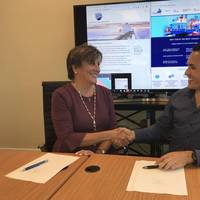
Total Marine Solutions (TMS) and TGM Fleet & Consulting Services (TGM) have signed a Memorandum of Understanding designed to strengthen and promote the development of port specific information incorporated into TMS’ Ocean Guardian product.Developed by TMS, in collaboration with Brenock, Ocean Guardian is a digital tool that provides shipboard operators with immediate access to environmental regulations around the world. The software system removes the guesswork from environmental compliance…
Asian Workshop Addressing Marine Litter
Marine litter poses significant risks to the marine environment, ecology and human health, and is a global concern. International Maritime Organization (IMO) has been taking action to address the problem, including regulating garbage discharge from ships and helping countries build up their human and technical capacities. An IMO Regional Workshop on MARPOL Annex V and Port Reception Facilities for the ASEAN Region took place in Ho Chi Minh City, Viet Nam (27-29 June). The workshop is aimed at raising the awareness on marine litter and enhancing the effective implementation of IMO garbage regulations on ships and in port reception facilities.
ECSA Welcomes New Directive on Port Reception Facilities
The recently published proposal for a new Directive on Port Reception Facilities is welcomed by European Community Shipowners' Associations (ECSA), as it addresses major issues with the current system in place. The new proposal will help in ensuring there are adequate port reception facilities available, require an advance waste notification from ships as well as a waste delivery receipt for reception facilities, and facilitate monitoring and enforcement through existing systems for electronic reporting and the exchange of information. It also suggests a reasonable, transparent and functional fee system forming an incentive to shipowners to deliver waste ashore. “We believe that the procedures in ports should be as efficient as possible, to keep costs at acceptable levels.
Aegean to Acquire H.E.C. Europe
Aegean Marine Petroleum Network Inc. announced today that it has entered into a definitive agreement to acquire all of the outstanding share capital of H.E.C. Europe Limited (H.E.C.), the parent company of Hellenic Environmental Center S.A. and a group of companies that together provide global port reception facilities services, from the shareholders of H.E.C., for aggregate consideration of approximately $367 million, including the assumption of certain indebtedness, which consideration is payable in the form of a combination of debt, the assignment of certain accounts receivables, cash (determined in accordance with the definitive agreement) and shares of Aegean common stock…
EU Shipowners Plastic Strategy at Ports
European shipowners welcome the Plastic Strategy adopted by the European Commission last week. The first-ever Europe-wide strategy on plastics, adopted today, is a part of the transition towards a more circular economy. The coherent and impressively first-ever Europe-wide strategy on plastic forming part of the transition towards a more circular economy also included the long awaited revision of the Ports Reception Facilities Directive. The new proposal aims to achieve a higher level of protection of the marine environment and introduces measures to prevent marine litter. It aims to ensure there are adequate port reception facilities available, require an advance waste notification from ships and transparency of the waste delivery fee charging structures.
ESPO Focuses on Ship Waste Management
The European Commission published the new proposal on the revision of the Port Reception Facilities (PRF) Directive. ESPO welcomes in principle the new proposal and its objective to build upon the substantial progress achieved under the existing Directive. European ports believe that any provisions leading to better enforcement of the obligation for ships to deliver waste at shore are welcome. The alignment of specific elements of the Directive with the International Convention for the Prevention of Pollution from Ships (MARPOL) gains ESPO’s support. ESPO also believes that addressing the waste from fishing ships (fishing nets) and recreational craft will lead to a more comprehensive policy of tackling the sea-based sources of marine litter.
Combating Marine Litter
The effective implementation of IMO garbage regulations (MARPOL Annex V) on ships and in port reception facilities was the main focus of an IMO regional workshop on marine litter for the East Asian seas region, held in Jeju, Republic of Korea (5-8 December). (The Marine Environment Protection Committee (MEPC), at its 55th session in October 2006, established an intersessional correspondence group to develop a framework for a comprehensive review of MARPOL Annex V). Garbage from ships can be just as deadly to marine life as oil or chemicals. Participants shared experiences of implementing marine litter requirements. Site visits included the waste oil disposal facility and clean-up vessel operated by the Korea Marine Environment Management Corporation (KOEM), which hosted the workshop.
CLIA, ECSA Welcomes European Directive on Port Reception Facilities
The Cruise Lines International Association Europe (CLIA Europe) and the European Community Shipowners’ Associations (ECSA) welcome the revision of the European directive on port reception facilities for ship-generated waste and cargo residues. Whereas the directive has produced positive effects since its entry into force, there are however a number of shortcomings that need to be addressed. The evaluation of the Port Reception Facilities Directive is therefore essential. In the recently concluded public consultation launched by the European Commission, ECSA and CLIA raised a number of issues in their joint statement. “A timely review…
40 Years Protecting the Mediterranean
International Maritime Organization (IMO) joined celebrations marking four decades of cooperation in the Mediterranean to prevent and combat marine pollution from ships under the Regional Marine Pollution Emergency Response Centre for the Mediterranean Sea (REMPEC). Speaking at the REMPEC 40th Anniversary Conference during the Malta Maritime Summit (3-6 October), IMO Secretary-General Kitack Lim heralded REMPEC as a vitally important but often unsung player in the battle to protect one of the world's most sensitive and vulnerable marine assets. Lim also emphasized IMO’s pride in the role it played in helping to set up REMPEC – and of its continuing work in administering the Centre.
IMO Restricts Ship Sewage Discharges into Baltic Sea
The International Maritime Organization (IMO) agreed this week that the Baltic Sea special area for sewage discharges from passenger ships under Annex IV or the MARPOL Convention will take effect by latest 2021 for IMO registered passenger vessels. If a passenger vessel has an approved sewage treatment plant, meeting all IMO standards, it may discharge its effluent in the Baltic after treatment. However, in certain cases of direct passages between St. Petersburg area and the North Sea there is a two-year extension to the deadline, until 2023. The decision follows the efforts of Baltic Marine Environment Protection Commission – Helsinki Commission (HELCOM) aimed at limiting sewage discharges in the Baltic Sea from passenger vessels…
Interferry: Aiming High in the Cause of Common Sense

Interferry CEO Len Roueche reviews the latest regulatory challenges impacting the ferry industry. With U.S. origins dating back more than 40 years, Interferry is the trade association and main voice for the global ferry sector – a crucial but often forgotten part of the wider shipping industry. Historically this has been particularly true with regard to regulatory issues at the International Maritime Organization (IMO), but in recent times the association has emerged as an increasingly influential platform within the corridors of power.
The Sustainable Ocean Summit set for Singapore
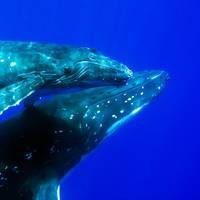
“Sustainable development” has gone from buzz word to business imperative in the two decades since the initial Earth Summit in Rio de Janeiro in 1992. Companies are increasingly evaluated on how well they address sustainability as a critical measure of their commitment to the triple bottom line – people, planet and profit. Stakeholders expect companies to develop sustainability and corporate responsibility programs and reporting as part of efforts to take up civil society concerns and maintain the social license to operate.





